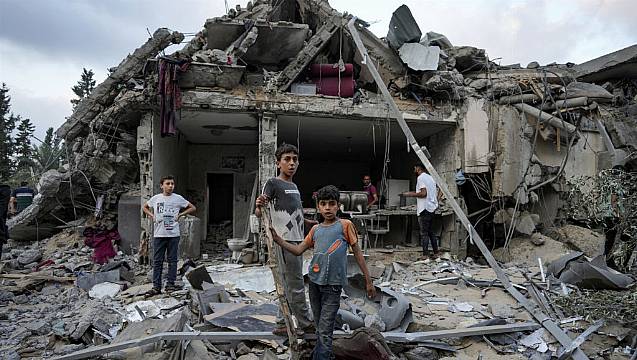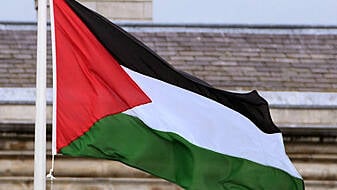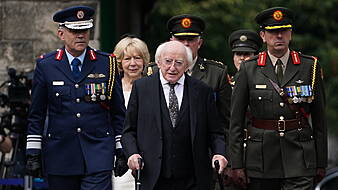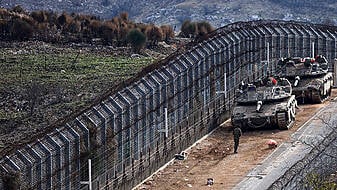Israel closed its main crossing point for delivering badly needed humanitarian aid for Gaza on Sunday, after Hamas militants attacked it, reportedly wounding several Israelis.
The defence minister warned of “a powerful operation in the very near future in Rafah and other places across all of Gaza”.
Both struck blows to ongoing ceasefire efforts in Cairo mediated by Egypt and Qatar after reported signs of progress.
Israel has not sent a delegation, unlike Hamas, and defence minister Yoav Gallant said that “we see signs that Hamas does not intend to go to any agreement”.
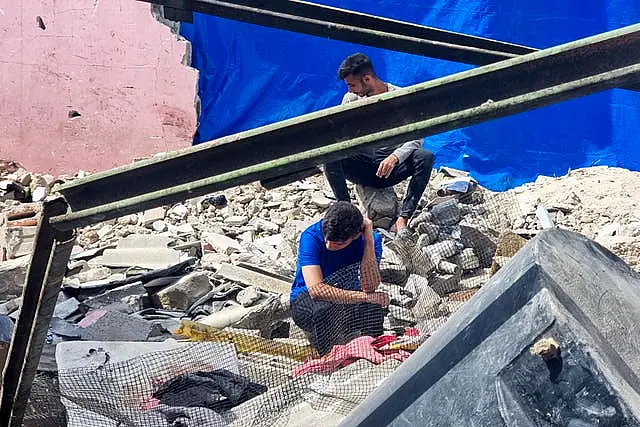
Prime minister Benjamin Netanyahu, under pressure from hardliners in his government, continued to lower expectations for a ceasefire deal, calling the demands of the Hamas militant group “extreme”, including the withdrawal of Israel forces from Gaza and an end to the war.
That would equal surrender after the Hamas attack on October 7 that triggered the war, Mr Netanyahu said.
Instead, his government again vowed to press on with a military operation in Rafah, the southernmost Gaza city on the border with Egypt, where more than half of Gaza’s 2.3 million residents now seek shelter from Israeli attacks.
Rafah is a key entry point for aid.
Kerem Shalom, now closed, is another.
The Israeli military reported 10 projectiles were launches at the crossing and said its fighter jets later struck the launcher.
בשואה הנוראה היו מנהיגים גדולים בעולם שעמדו מנגד, ולכן הלקח הראשון של השואה הוא זה: אם לא נגן על עצמנו - אף אחד לא יגן עלינו. ואם אנו צריכים לעמוד לבד - נעמוד לבד. pic.twitter.com/AQ18dNVjZX
Advertisement— Benjamin Netanyahu - בנימין נתניהו (@netanyahu) May 5, 2024
Hamas said it had been targeting Israeli soldiers in the area. Israel’s Channel 12 TV channel said 10 people were wounded, three seriously. It was unclear how long the crossing would be closed.
The attack came shortly after the head of the UN World Food Programme asserted “full-blown famine” in badly hit northern Gaza, one of the most prominent warnings yet of the toll of restrictions on food and other aid entering the territory.
The comments were not a formal famine declaration.
Gaza’s vast humanitarian needs put further pressure on the ceasefire talks.
Egyptian and Hamas officials have said the deal under discussion calls for an extended pause in fighting in exchange for the release of Israeli hostages held by Hamas.
But the sides remain at odds over whether the deal would include an end to the war and a complete withdrawal of Israeli troops from Gaza.
Mr Netanyahu said that Israel has shown willingness to make concessions but said it “will continue fighting until all of its objectives are achieved”.

That includes the stated aim of crushing Hamas.
Israel says it must target Rafah to strike remaining fighters there despite warnings from the US and others about the danger to civilians.
In later remarks for Israel’s annual Holocaust memorial day, Mr Netanyahu added: “We will defend ourselves in every way. We will overcome our enemies and we will ensure our security, in the Gaza Strip, on the Lebanese border, everywhere.”
The Hamas cross-border attack on October 7 killed some 1,200 people and took 250 others hostage.
Israel says militants still hold about 100 hostages and the remains of more than 30 others.
Mr Netanyahu is under growing pressure from some hostages’ families to make a deal to end the war and get hostages freed.
Israeli’s air and ground offensive has killed more than 34,500 people, according to Palestinian health officials, who do not differentiate between civilians and combatants but say women and children make up a majority of those killed.
Israel blames Hamas for civilian deaths, accusing it of embedding in residential and public areas. The Israeli military says it has killed 13,000 militants, without providing evidence to back up the claim.
